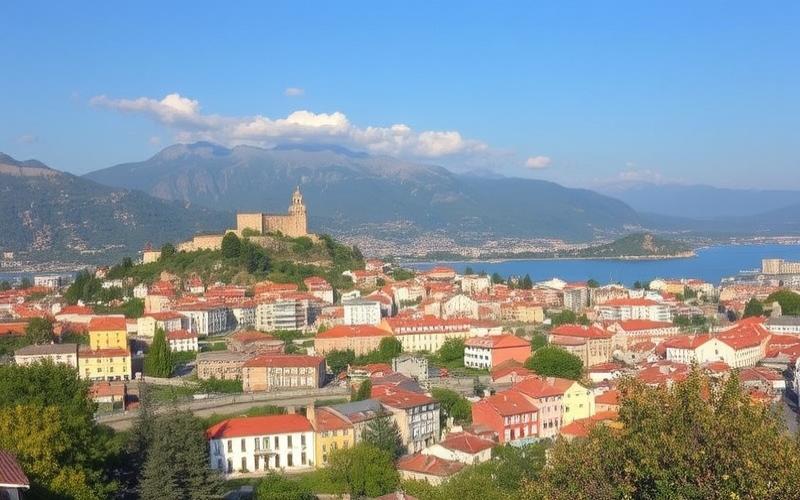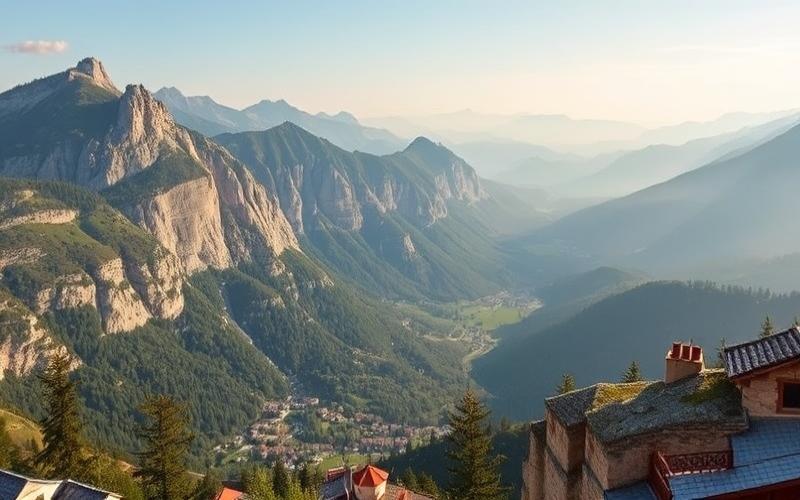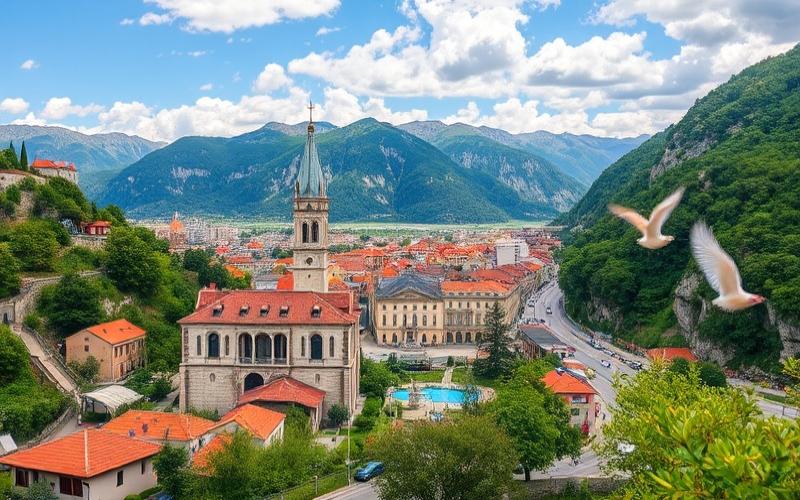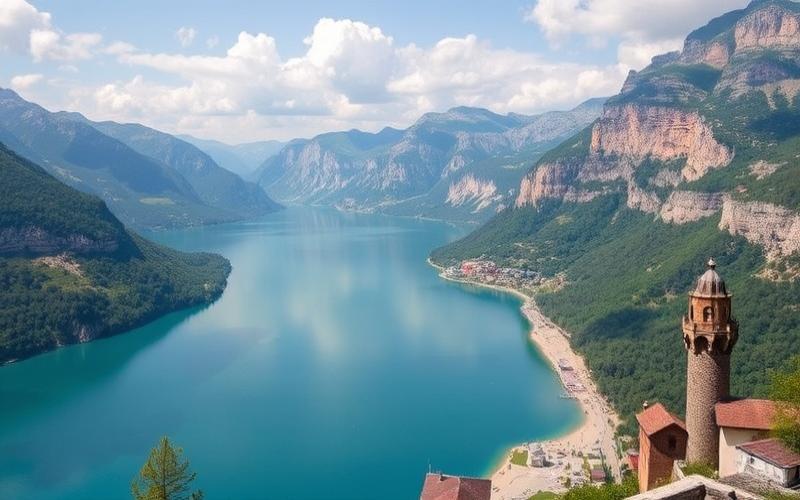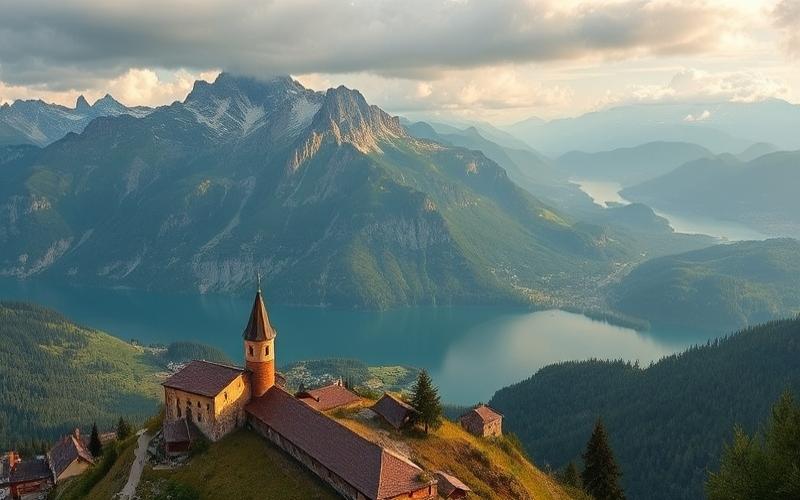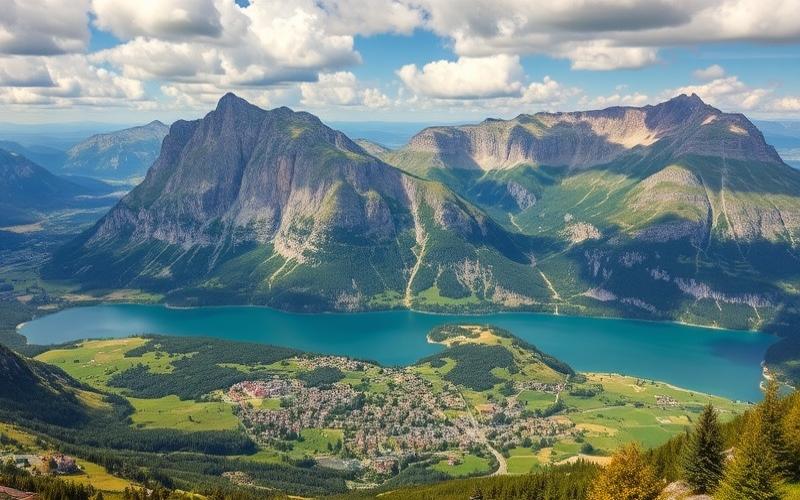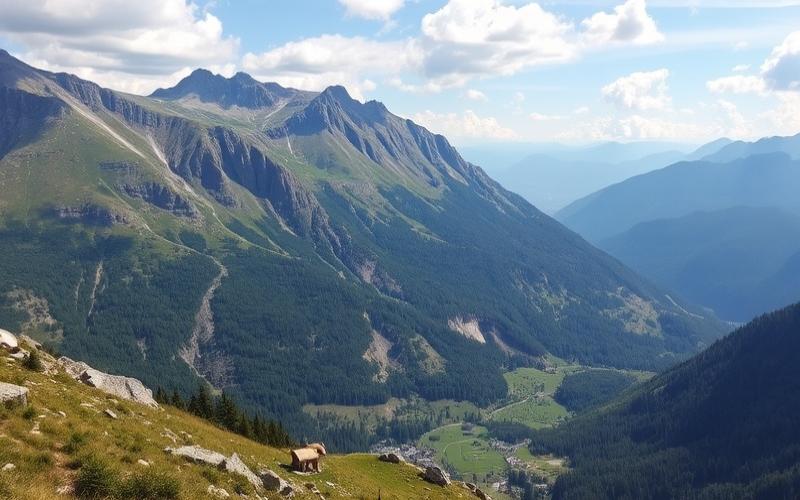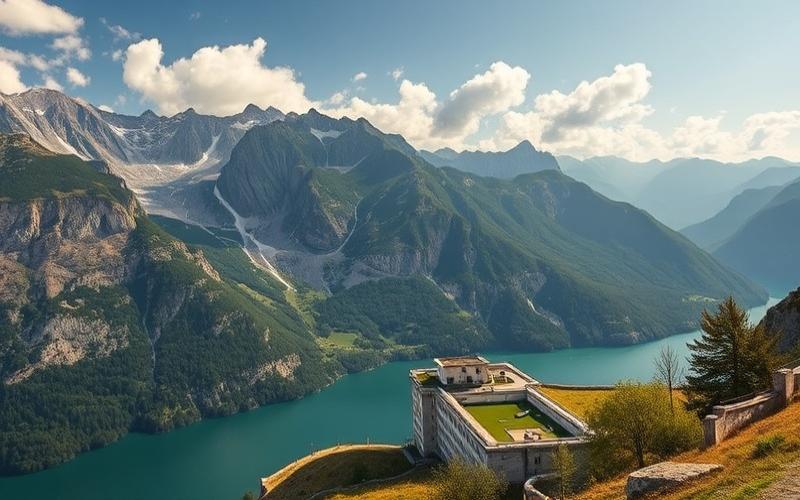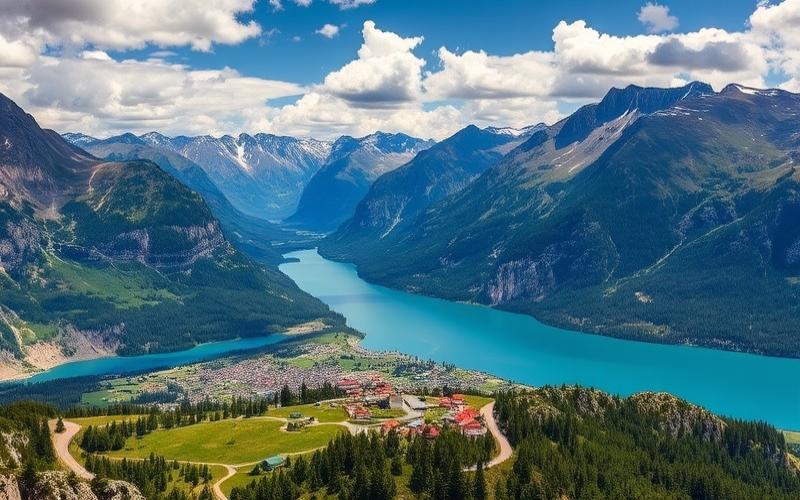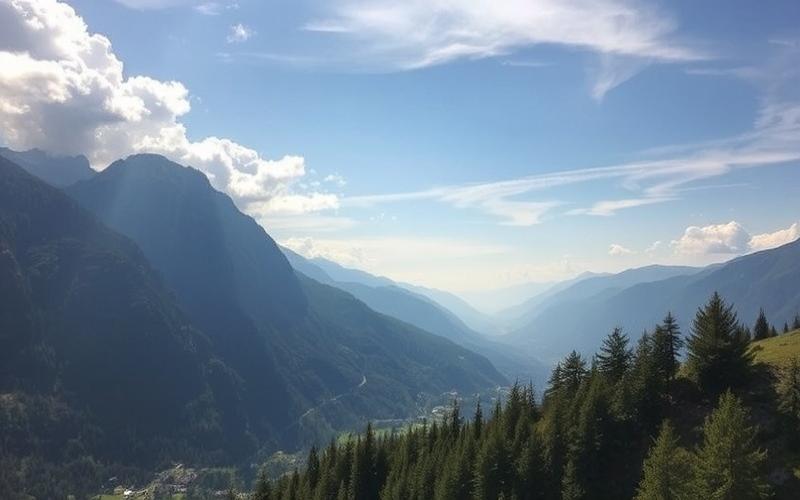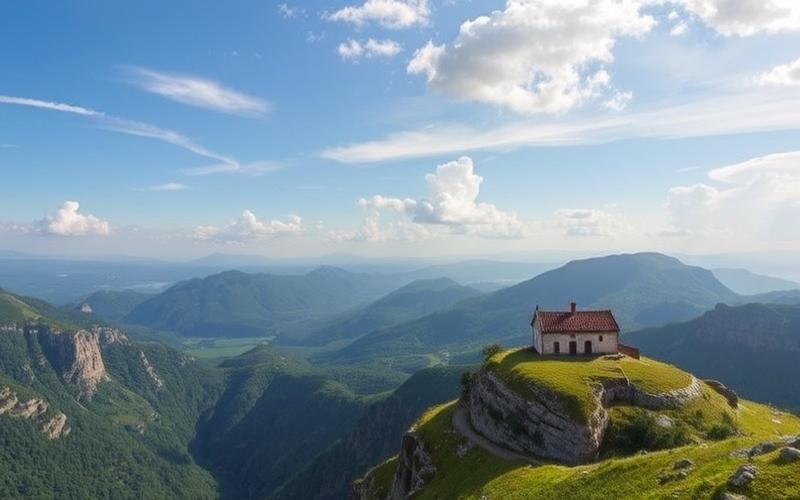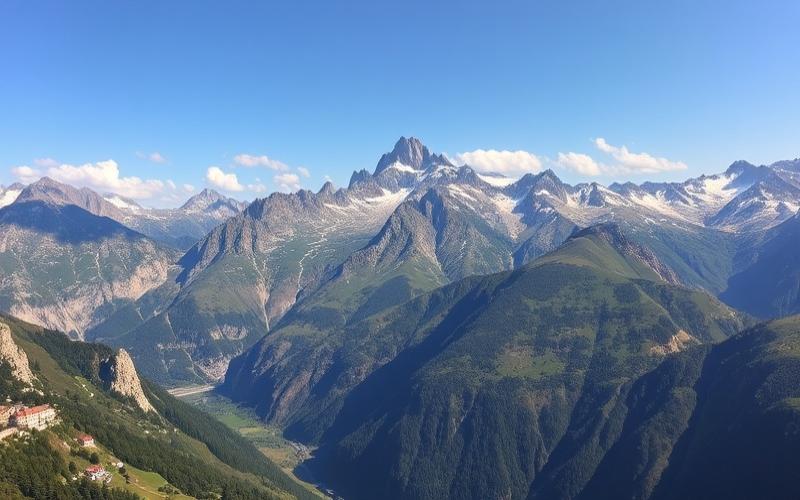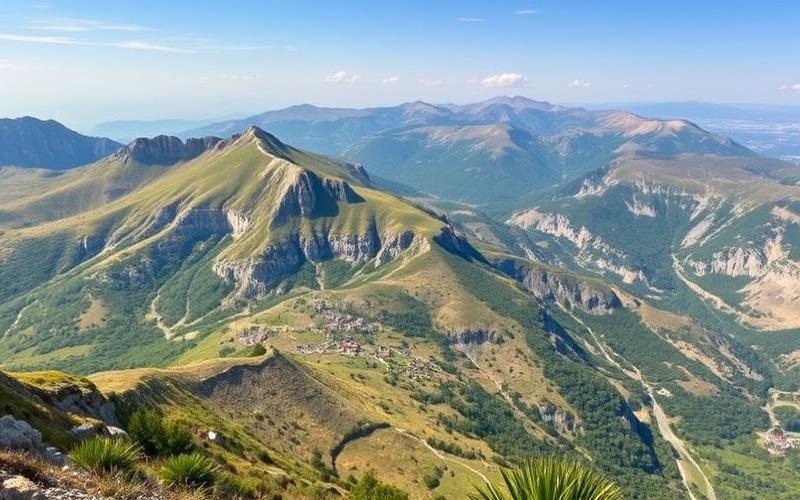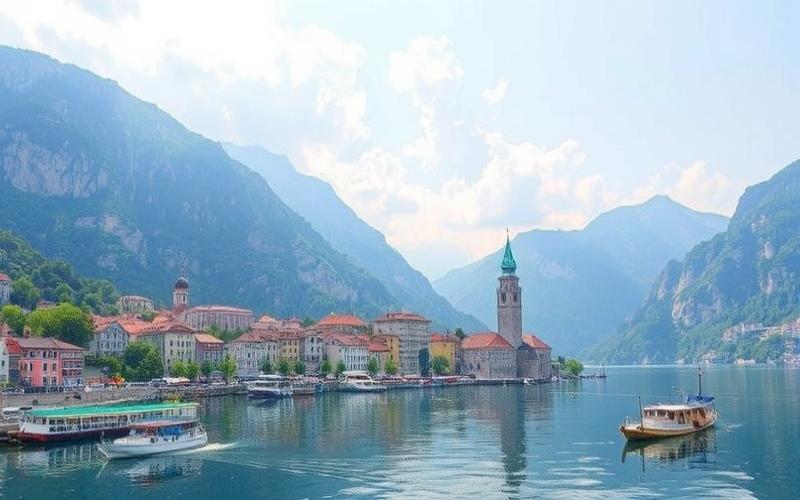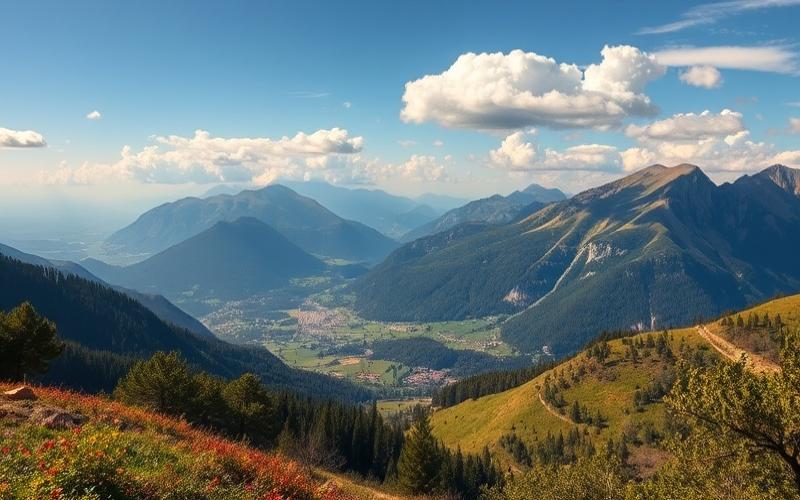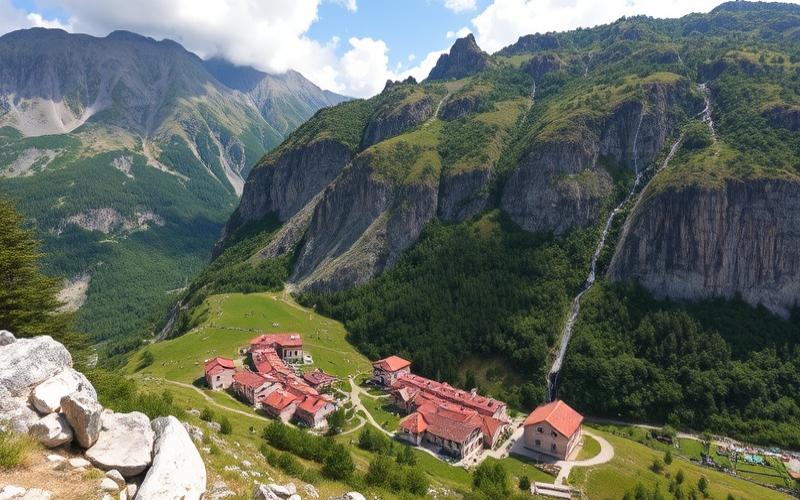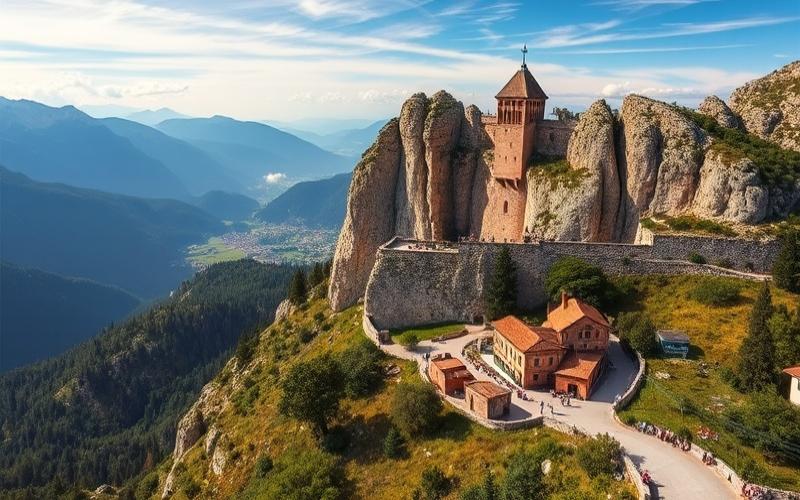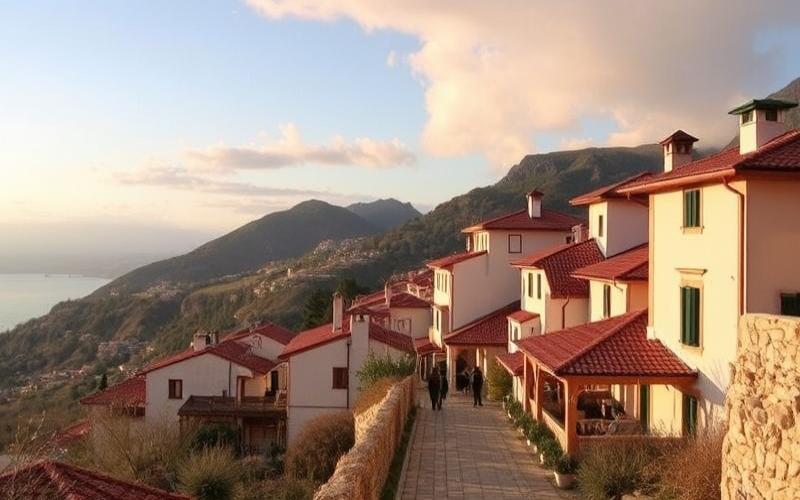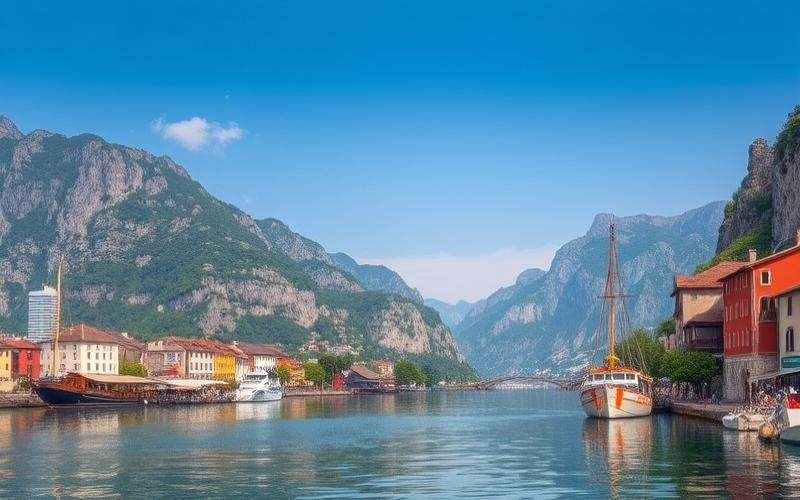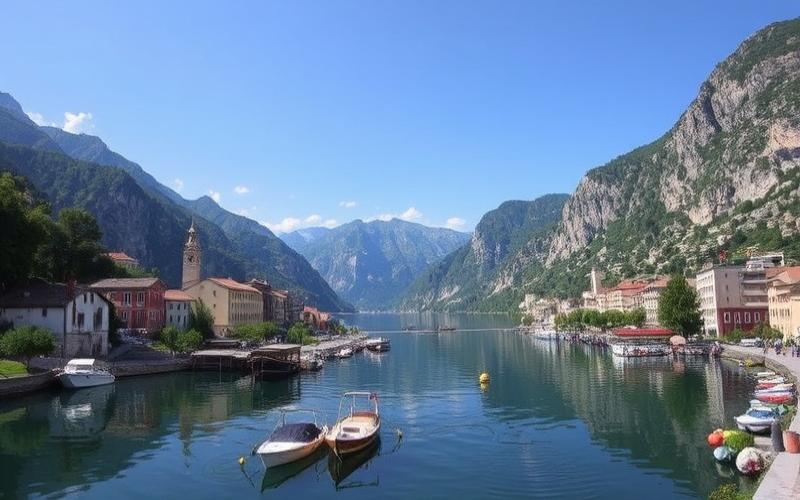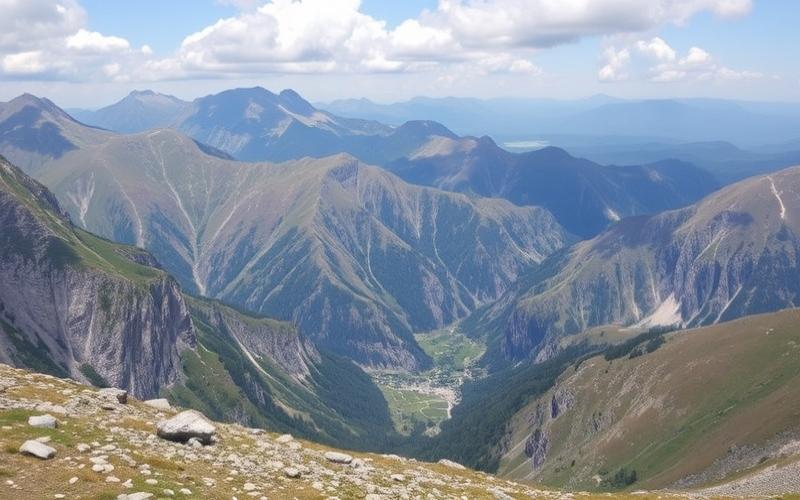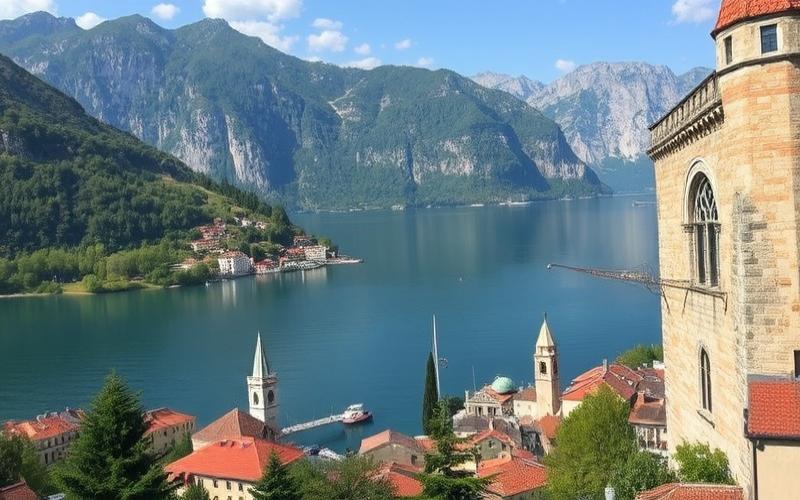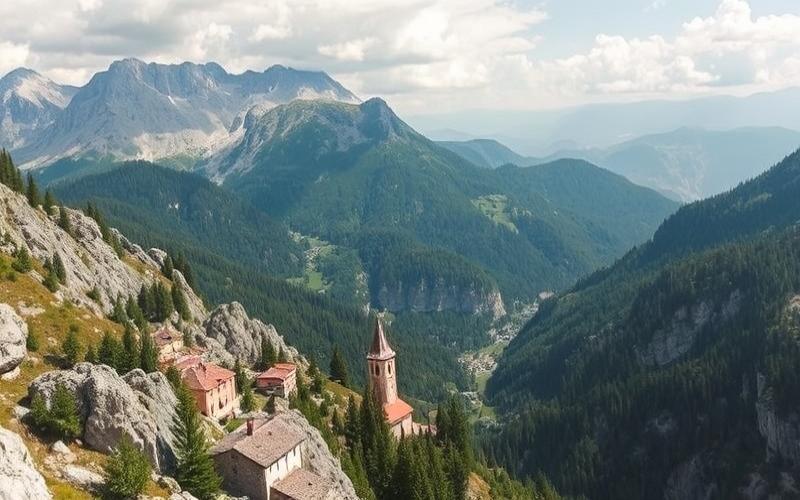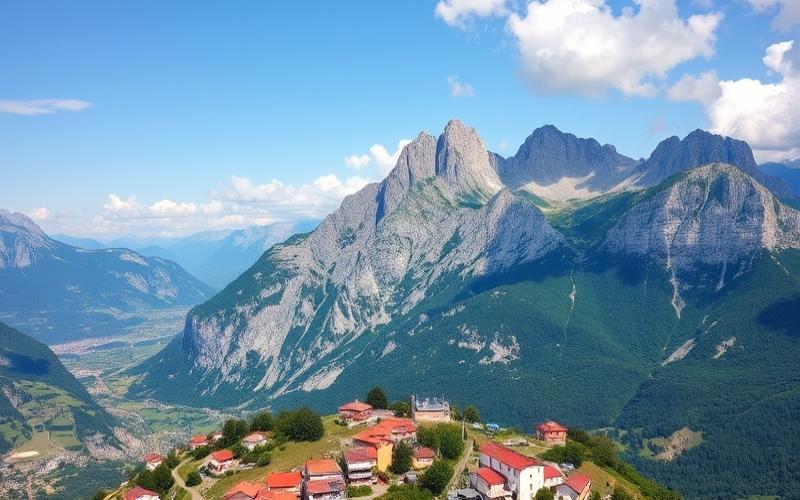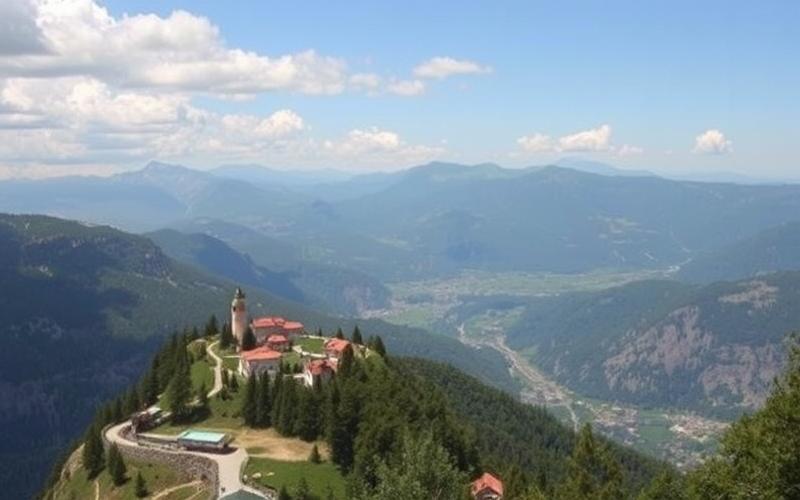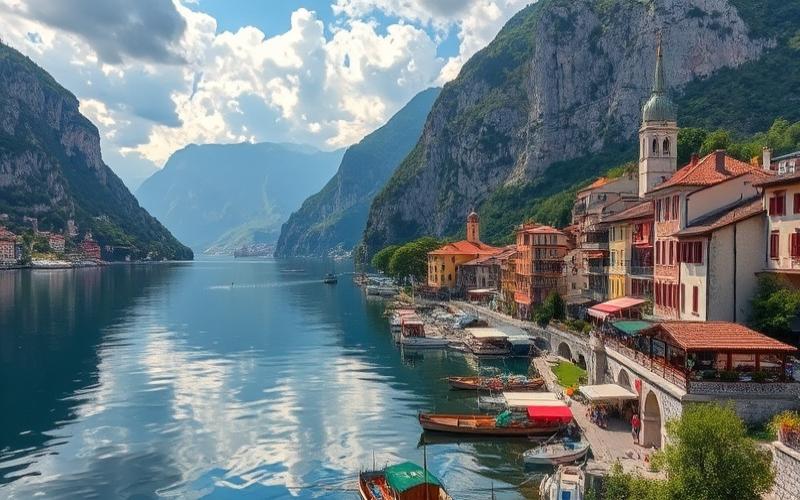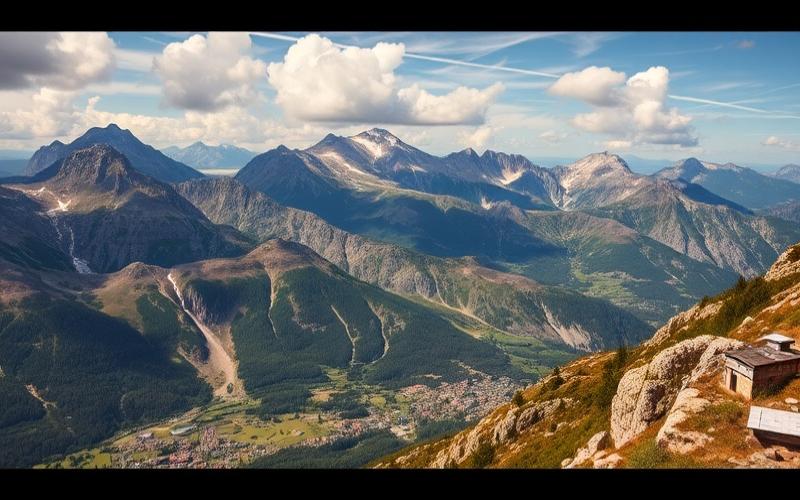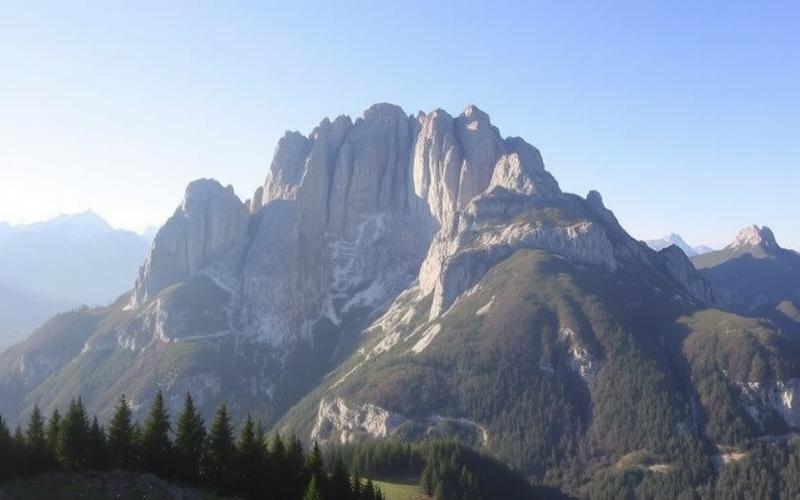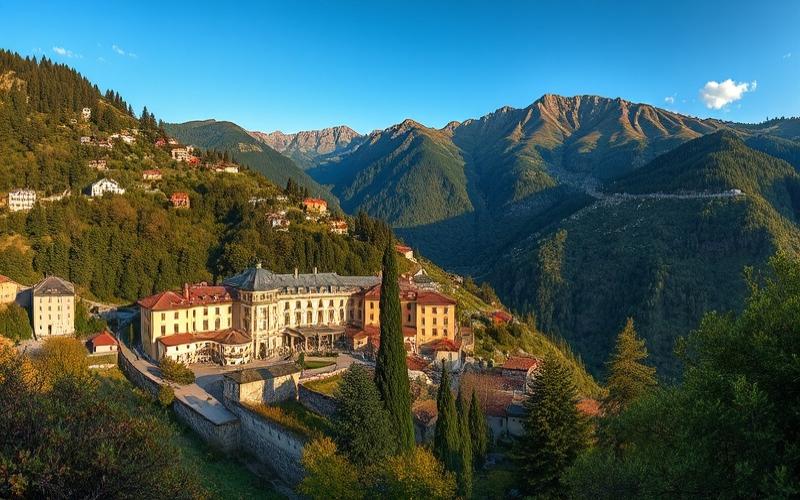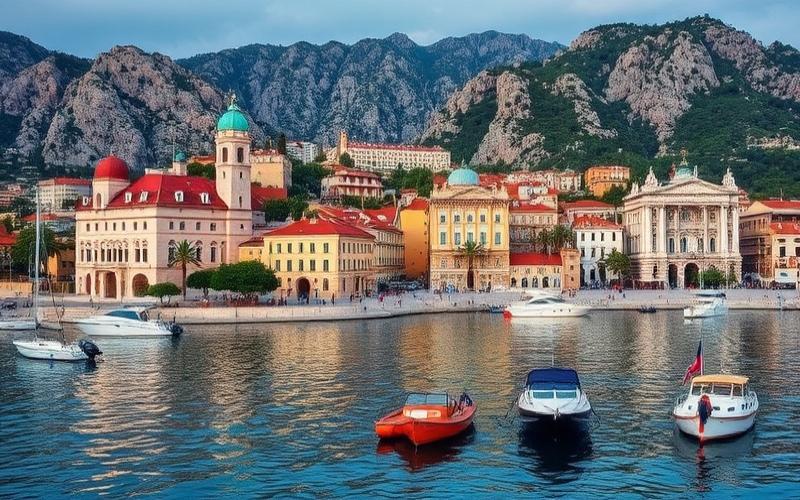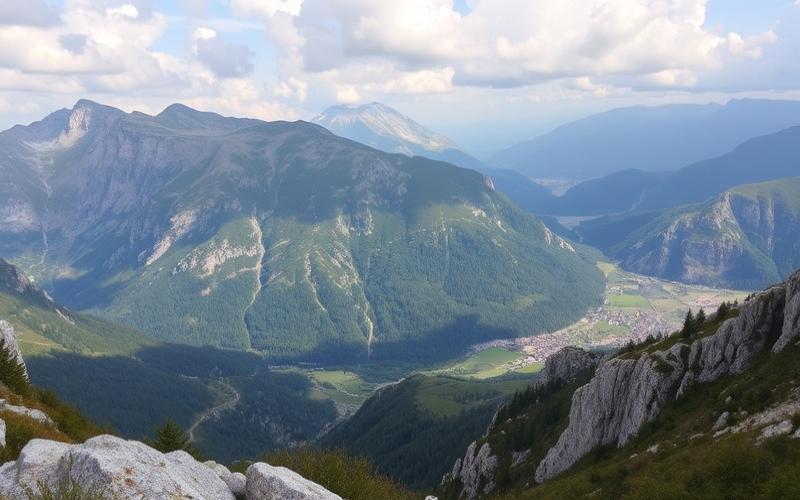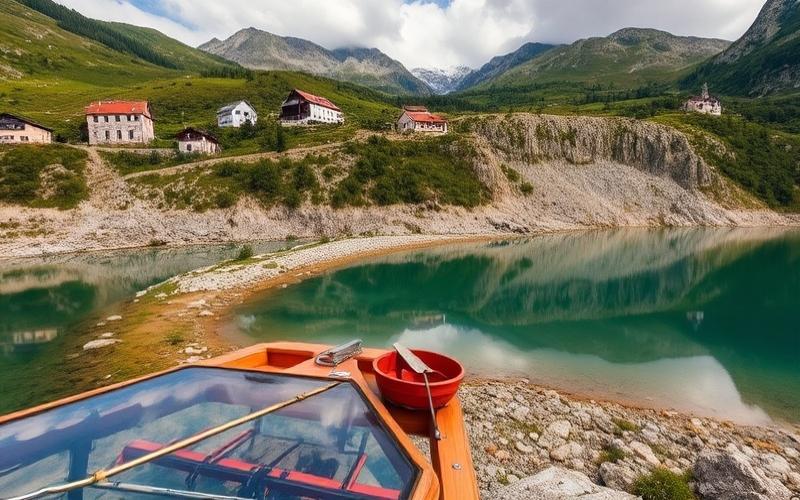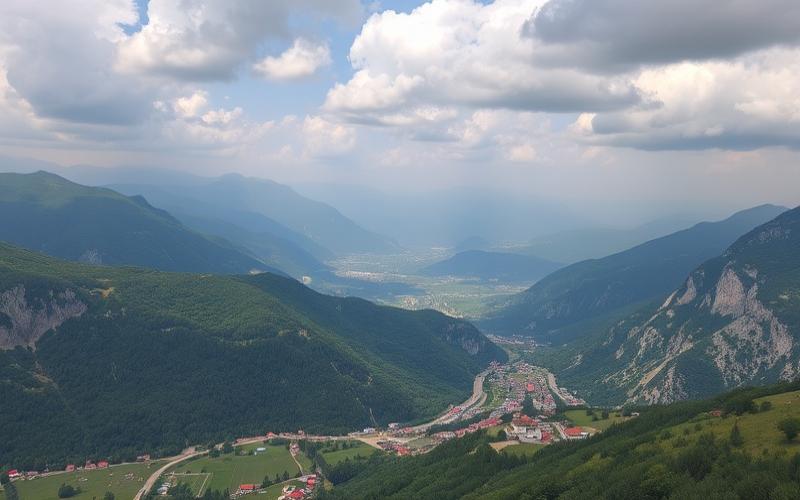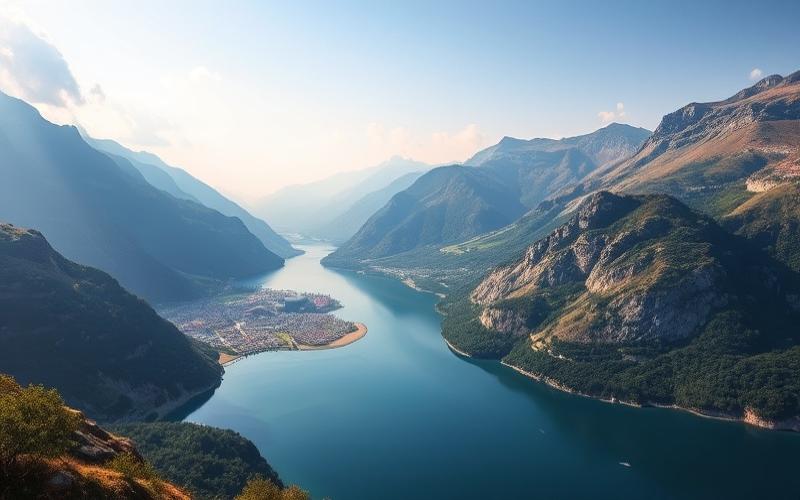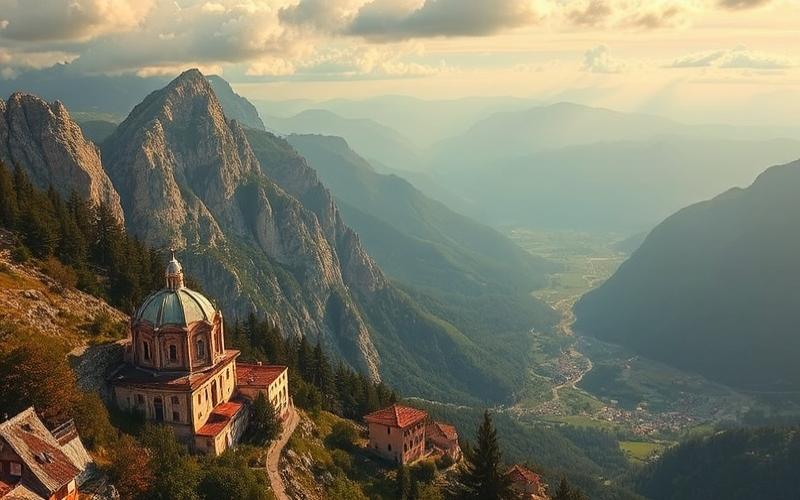
 Published on and written by Cyril Jarnias
Published on and written by Cyril Jarnias
Montenegro, a small Balkan country nestled on the shores of the Adriatic Sea, is experiencing rapid development in its commercial real estate market. With a growing economy and increasing influx of foreign investment, the country offers attractive opportunities for real estate investors seeking appealing returns and long-term appreciation potential.
The Montenegrin commercial real estate market benefits from several favorable factors: advantageous taxation, relatively low acquisition costs compared to other European destinations, and a rapidly expanding tourism sector that stimulates demand for various types of commercial properties. Additionally, government efforts to improve infrastructure and attract foreign investment contribute to creating a business-friendly environment.
However, like any emerging market, commercial real estate in Montenegro also presents certain risks and challenges. It is crucial for investors to thoroughly understand local specifics, market trends, and the regulatory framework before getting started. In this article, we will explore in detail investment opportunities in Montenegro’s commercial real estate, examining different types of available properties, their potential profitability, as well as current and future sector trends.
Diverse Opportunities: Commercial Property Overview
The commercial real estate market in Montenegro offers a diverse range of properties, suitable for different types of investors and strategies. Here’s an overview of the main property categories available:
Hotels and Tourist Complexes: The Market’s Driving Force
The hospitality sector undoubtedly represents one of the most dynamic segments of commercial real estate in Montenegro. With the rise of luxury tourism in the country, there’s growing demand for high-end establishments, particularly along the Adriatic coast. Ambitious projects like Porto Montenegro in Tivat or Lustica Bay near Kotor demonstrate this trend.
Investment opportunities in this field range from small boutique hotels to large integrated complexes. For example, a 200 m² hotel in Baošići, near the sea, is currently offered for sale for approximately €450,000, offering interesting rental yield potential thanks to its prime location[7].
Office Spaces: Rising Demand in Urban Centers
Although less developed than the hospitality sector, the office market is experiencing steady growth, particularly in the capital Podgorica and coastal cities like Budva or Bar. Demand is fueled by the increasing establishment of foreign companies and the development of the service sector.
Investors can consider acquiring existing office buildings or participating in development projects. Prices per square meter vary considerably depending on location and building quality, ranging from approximately €1,500 to over €3,000 in the most sought-after areas.
Retail and Commercial Spaces: Opportunities in Tourist Areas
The retail sector also offers interesting prospects, particularly in high-traffic tourist areas. Prime locations in historic city centers or new commercial areas in seaside resorts can generate attractive rental yields.
Investors can target individual shops, shopping galleries, or even entire shopping centers. For example, a well-located commercial space in Budva can trade between €2,500 and €4,000 per square meter, with monthly rents reaching €50 to €80 per square meter for the best locations.
Warehouses and Logistics: A Developing Sector
With improved transportation infrastructure and the growth of e-commerce, the logistics sector is gaining importance in Montenegro. Investment opportunities in this area mainly concentrate around major road arteries and port areas.
Warehouse and industrial land prices are generally more affordable than commercial properties in city centers, thus offering interesting yield potential for investors willing to commit long-term.
Good to Know:
The commercial real estate market in Montenegro offers a variety of investment options, ranging from luxury hotels to logistics warehouses. Coastal areas and major cities concentrate most opportunities, with prices and yields varying according to property type and location.
Profitability and Risks: Assessing Investment Potential
Investing in commercial real estate in Montenegro can prove lucrative, but it’s essential to properly evaluate potential returns and associated risks before getting started.
Attractive Rental Yields
The Montenegrin commercial real estate market generally offers rental yields higher than those observed in many Western European countries. According to recent data, gross yields can range between 5% and 8% for well-located properties, with peaks reaching 10% to 12% for certain property types like hotels or retail in prime tourist areas[4].
For example, a 51 m² apartment in the UNESCO World Heritage-listed Old Town of Kotor can generate a net rental yield of over 4% after accounting for taxes and maintenance costs[1]. This type of property offers the advantage of usage flexibility, being rentable both long-term and as seasonal tourist accommodation.
Long-Term Appreciation Potential
Beyond rental income, investors can also benefit from property value appreciation over the long term. The Montenegrin real estate market has experienced significant growth in recent years, with particularly marked price increases in coastal and tourist areas.
For example, in Herceg Novi, a coastal city undergoing rapid development, real estate prices have seen steady increases, driven by the arrival of high-end projects like Porto Novi. This upward trend is expected to continue, particularly if the country manages to achieve its EU accession in the coming years.
Risks and Challenges to Consider
Despite these attractive prospects, investing in Montenegro also involves certain risks that should not be overlooked:
- Economic volatility: Montenegro’s economy remains relatively dependent on tourism and foreign investment, making it vulnerable to external shocks[1].
- Evolving regulatory framework: Although the government has made efforts to improve the business environment, some aspects of the legal and regulatory framework may still lack clarity or be subject to changes.
- Market liquidity: The Montenegrin commercial real estate market is still relatively small and may lack liquidity, making the resale of certain properties more difficult.
- Geopolitical risks: The situation in the Balkans, although currently stable, can be a source of uncertainty for some investors.
Strategies to Optimize Return on Investment
To maximize success chances, investors can adopt several strategies:
- Diversification: Spreading investments across different property types and locations can help reduce risks.
- Focus on quality: Prioritizing well-located, high-quality properties that are more likely to maintain their value and attract solvent tenants.
- Professional management: Using experienced local managers can help optimize returns and navigate the local regulatory environment.
- Long-term vision: Adopting a long-term investment perspective allows better absorption of short-term market fluctuations.
Good to Know:
Commercial real estate in Montenegro offers potentially high returns but also carries specific risks. A cautious approach, good diversification, and professional management are essential for successful investment.
A Market in Transformation: Trends and Future Prospects
The commercial real estate sector in Montenegro is undergoing rapid evolution, influenced by various economic, social, and technological factors. Understanding these trends is crucial for investors looking to position themselves in this dynamic market.
Upscaling and Sustainable Development
One of the most notable trends is the upscaling of commercial real estate offerings, particularly in the tourism sector. Luxury projects like Porto Montenegro, Lustica Bay, or the future Ritz-Carlton on the Lustica peninsula demonstrate this evolution[1]. This trend is accompanied by increasing attention to sustainable development, with projects incorporating green technologies and environmental certifications.
For example, the Lustica Bay complex, developed by Orascom, plans a total investment of approximately €1 billion over 15 years, including luxury hotels, villas, apartments, and even a golf course, all designed with sustainability in mind[1].
Diversification of Investors and Products
The market is attracting an increasingly diverse range of investors, from international investment funds to wealthy individuals. This diversification is accompanied by an evolution of real estate products offered, with the emergence of new concepts like co-working spaces, serviced residences, or mixed-use complexes.
For example, in the capital Podgorica, there’s growing interest in flexible office spaces, meeting the needs of startups and international companies establishing themselves in the country.
Digitalization and Technological Innovation
Digital transformation is also affecting the commercial real estate sector in Montenegro. Investors and property managers are increasingly adopting technological tools to optimize property management, improve tenant experience, and reduce operational costs.
This trend manifests through the integration of smart building management systems, the use of virtual reality for property tours, or the development of online platforms for commercial property rental and management.
Infrastructure Development and Connectivity
Massive investments in infrastructure, particularly in transportation and telecommunications, have a significant impact on the commercial real estate market. Improved accessibility and connectivity are opening new opportunities in previously less attractive areas.
For example, the development of Tivat Airport and improved road connections along the Adriatic coast have helped stimulate investor interest in areas like Herceg Novi, which now benefit from better accessibility[1].
Evolution of Regulatory and Tax Framework
The Montenegrin government continues to work on improving the business climate, particularly with an eye toward future EU accession. These efforts translate into reforms of the regulatory and tax framework, which can significantly impact the attractiveness of the commercial real estate market.
For example, the country plans to join the SEPA (Single Euro Payments Area) in 2025, which should facilitate international financial transactions and potentially stimulate foreign investment[1].
Adaptation to Post-Covid Demands
The Covid-19 pandemic has accelerated certain trends and created new demands in commercial real estate. There’s notably growing interest in flexible workspaces, hybrid hospitality concepts, and properties offering better work-life balance.
This evolution translates into the development of real estate projects incorporating co-living spaces, wellness facilities, or amenities promoting remote work in residential and hotel complexes.
Good to Know:
The commercial real estate market in Montenegro is undergoing full transformation, with trends toward upscaling, diversification of products and investors, and increasing technology integration. Investors must remain attentive to these developments to seize the best opportunities.
Conclusion: A Promising Market for Savvy Investors
Commercial real estate in Montenegro offers attractive opportunities for investors seeking potentially high returns in a rapidly growing market. The diversity of investment options, ranging from luxury hotels to modern office spaces, allows investors to find opportunities suited to their objectives and risk profile.
However, like any emerging market, it also presents challenges and risks that should be properly evaluated. Thorough knowledge of the local market, rigorous due diligence, and a well-defined investment strategy are essential for success in this sector.
Current trends, such as the upscaling of offerings, focus on sustainable development, and integration of new technologies, suggest a promising future for Montenegrin commercial real estate. The continuous improvement of infrastructure and potential future EU accession are among factors that could contribute to long-term market growth and stabilization.
For investors ready to commit to this dynamic market, Montenegro offers a unique combination of attractive return opportunities and appreciation potential, in an exceptional natural setting and an evolving economic environment.
Disclaimer: The information provided on this website is for informational purposes only and does not constitute financial, legal, or professional advice. We encourage you to consult qualified experts before making any investment, real estate, or expatriation decisions. Although we strive to maintain up-to-date and accurate information, we do not guarantee the completeness, accuracy, or timeliness of the proposed content. As investment and expatriation involve risks, we disclaim any liability for potential losses or damages arising from the use of this site. Your use of this site confirms your acceptance of these terms and your understanding of the associated risks.

